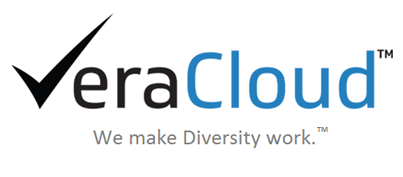1916? 2017? This morning's early Saturday walk in Dublin to find the Book of Kells, was quickly overshadowed by the gravitas of the morning headlines from America...
How responsible and purposeful leaders can create opportunity from uncertainty
Market-based solutions are required for solving the public sector's most challenging issues
Resiliency, persistence, democratizing access, and dismantling systemic inequalities: tools for success from the 12th annual Massachusetts Conference for Women
The 12th annual Massachusetts Conference for Women has kicked off last night and today at the Boston Convention Center. This conference brings front and center the underlying systemic disparities around opportunities, support structures, and tools available to help girls and women to achieve economic empowerment, success, and mobility. The data on the outcomes of these kinds of collective efforts to support women’s business initiatives (despite public, private, and non-profit sector efforts), is still far from promising, and more clearly needs to be done:
Nearly 10 million businesses in the United States are majority-owned by women, 36 percent of all firms. While that’s nothing to sneeze at, the proportion of entrepreneurs who are women actually has dropped in recent years, according to the Kauffman Index of Startup Activity. In 1997, women started nearly 44 percent of new businesses, and by 2014 that level had slipped below 37 percent.
At this Boston conference are many strong role models with invaluable experience, context, and coaching for women to address: #opportunity #access #inclusion #inequality and more. Let’s hope that the organizers put these sessions up so that more than just the 11,000 passionate individuals here can have access to them. Among the speakers who stand out: Sarah Blakely, the youngest female self-made billionaire and founder of SPANX who speaks quite powerfully about resilience, failure, the power of failure as a character builder and foundational learning tool. (Read 10 Lessons I Learned from Sara Blakely That You Won't Hear in Business School for additional insights into the resiliency of this motivated and accomplished female entrepreneur.)
Boston increases its commitment to creating a more inclusive city
Focus on Outcomes: Fostering entrepreneurship and pathways to Economic independence
Deepening trust across communities and dismantling systemic racism
In Oregon and across the US: Easing disparities and inequality for diverse populations.
The multiplier effect of disaster recovery dollars
DEMOCRACY ONLY WORKS WHEN IT WORKS FOR EVERYONE
NYC continues to struggle with its obligations to Minority, Women-owned and other Diverse businesses
VeraCloud selected to participate in 12th and final Clinton Foundation Annual Meeting in NYC
MWBE fraud: $Billions in lost economic opportunity for diverse businesses and the families & communities they support.
Until the 1970’s, federal procurement dollars virtually bypassed Minority and Women-owned businesses. Presidents Kennedy, Johnson, and Nixon signed executive orders to increase women and minority participation in the US public contracting market.
President Carter’s Public Works Employment Act of 1977 mandated for the first time that “at least 10% of federal funds granted for local public work projects” be used to procure services and products from MWBEs.
Cities and states have long since joined in, seeking to level the playing field via mandate, legislation, and compliance enforcement. BUT: all of these efforts have lacked effective tools & technologies to match opportunities with diverse businesses that are ready, willing, and able to work. As a result, inefficiencies and fraud like that at NYC's sacred Freedom Tower cheat diverse businesses out of their fair share of economic opportunity.
@veracloudtech we’ve built our technology platform to efficiently enable private contractors to better collaborate with diverse businesses to fuel greater access, opportunity and inclusion in public sector contracting work. When barriers are broken down, the market becomes stronger, competition ensues, and tangible progress is made on critical issues: diversity, access, financial inclusion, economic opportunity, and ongoing support for diverse businesses across the US.












